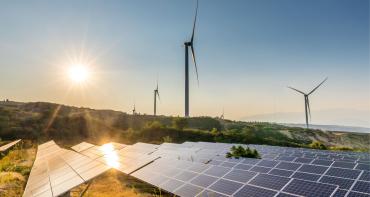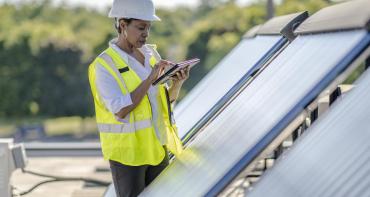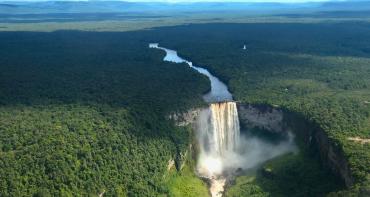Speaker: Commonwealth Secretary-General Kamalesh Sharma
Distinguished Delegates,
Ladies and Gentlemen,
I am delighted to welcome you to Marlborough House for the launch of the Pan Commonwealth Network on Environment and Climate Change. I am particularly pleased that representatives from across the regions have joined us to celebrate the start of this new community-of-practice and explore how together we can make it work for all of us.
The Commonwealth Secretariat has had a long-standing and pioneering interest in climate change issues and global environmental governance. Back in 1989, the Commonwealth’s Langkawi Declaration on the Environment cited the greenhouse effect as one of the main environmental problems facing the world, recognising the threats to islands and low-lying coastal states of sea level rise and other climate change perils. This was before even the 1992 Rio declaration on the environment. The Commonwealth’s emphasis on environmental issues is especially significant and relevant given that of the 100 countries classified globally as most vulnerable to climate change, 45 are in the Commonwealth, of which 31 are small states and 27 are small island developing states.
A report released by the World Bank last week notes that without substantial policy action and with business as usual continuing, climate models now suggest a warming of 4.7 degrees Celsius above pre-industrial levels and a 40% chance of exceeding 5 degrees Celsius. While this is a global picture, we also know that the impacts will manifest themselves differently within our regions, countries and communities. They are a particular challenge for our small and vulnerable states. We know that the poor disproportionately bear the brunt of climate change impacts. There is also the risk that climate change will undermine progress made by Commonwealth developing countries towards achieving the Millennium Development Goals and will present further challenges to achievement of any Sustainable Development Goals which are under consideration by the international community.
Research commissioned by us for the 2013 Commonwealth Consultative Group on the Environment shows that Commonwealth countries’ progress in achieving the seventh Millennium Development Goal on environmental sustainability has been mixed. It is encouraging that across the Commonwealth there has been an increase in terrestrial and marine protected areas and progress has been made to restrict the use of ozone depleting substances and in achieving the global target on water supply. However, over half of Commonwealth developing countries have yet to meet safe sanitation targets. Worryingly, there has also been an increase in deforestation from the 1990s to 2000s within the Commonwealth, counter to the global trend.
These issues underpin the importance of the continuing need for us to focus on sustainable development, environment and climate change issues in the Commonwealth; and these questions continue to be of priority interest and focus for us. In this context, and as desired by our Heads, I established a Commonwealth Expert Group to examine the issues of climate finance accessibility, particularly with reference to small island developing states and other vulnerable member states. The report of the Expert Group will be presented to our Heads of Government during CHOGM 2013 in November. Former President of Guyana, His Excellency Mr Bharrat Jagdeo kindly consented to Chair the Expert Group, and its first meeting was held at Marlborough House yesterday. I am delighted that President Jagdeo will be able to join us for my reception this evening to share his thoughts with us.
Today, Commonwealth small and vulnerable states are unable to unlock climate finance to meet their full needs or their low-emission climate-resilient development priorities. I have therefore requested the Expert Group to examine how the Commonwealth could assist its small and vulnerable members to access available climate funds and to look at how easier access to longer-term climate financing could be institutionalised. While the international focus on climate finance has stepped up significantly since the 2009 Copenhagen climate change conference, delivery of this financing remains unclear. We will have the opportunity also to hear today from Ms Jessica Boyle of the International Institute for Sustainable Development, who will share the findings of a background paper commissioned by us as a basis for the Expert Group’s deliberations.
The agenda for tomorrow includes an opportunity to share some Commonwealth approaches to implementation of the ‘Green Economy’. This is one means by which many Commonwealth member states have been looking to accrue value from the environment and natural resource assets in the context of ‘inclusive growth and sustainable development’, which is one of the Secretariat’s three new organisational goals. I hope that the session is able to provide all participants an opportunity to explore how we can bring a wider Commonwealth perspective to the international discourse in this area, and how this new network can be leveraged effectively to share lessons learned and provide value as a potential mechanism for peer review.
Sharing knowledge and experiences of successful interventions across the Commonwealth underpins this new network. Tomorrow two experts will share details of their work supporting our member states in two regional centres of excellence in the Caribbean and the Pacific on cost-benefit analysis of adaptation in different sectors – Mark Bynoe and Aaron Buncle have been placed by us in the Caribbean Community Climate Change Centre and the Pacific Regional Environmental Programme Secretariat respectively. I am sure all of you are looking forward to hearing from them and discussing further the value of cross-regional learning to foster climate resilience.
The Secretariat’s new Strategic Plan, which outlines our direction of travel to June 2017, has knowledge networking central to it. It places emphasis on environment and climate change issues, and prioritises assisting our members in the development of their natural resources. Copies have been made available here today to support development of practical and realistic ideas for the network.
The Plan sets the strategic objective for the Secretariat to be a global actor of impact in promoting awareness of environment and climate change issues, devising strategies for climate change finance and to act as a champion to advocate for the needs of small and vulnerable states. I would request that you keep this in mind in your discussions and as you develop your ideas and plans for the network, especially with regard to the high priority we place on improving frameworks for climate financing for our small and vulnerable member states. The focus of this community of practice principally on climate finance would be particularly timely as we head towards a new climate change deal to be negotiated in 2015.
Later this morning there will be presentations by Anne Hammill from IISD on lessons learned from other climate knowledge portals; and by Sam Bickerstef of CDKN who will discuss climate finance in the context of the work of climate development and knowledge networks. In this context, I would like to reiterate the importance the Secretariat also places on knowledge networking. We have established Commonwealth Connects as a secure ICT tool to facilitate inter-governmental linkages as well as pan-Commonwealth interaction among individuals, institutions, and practitioners. Connects is a vehicle for communities-of-practice to share knowledge and build working partnerships with peers and counterparts across the Commonwealth; and to collaborate collectively towards identifying and developing best practices. Within a year of its launch, Connects provides a platform for over a 100 networks and communities-of-practice, of various scales, to collaborate securely and successfully from their respective locations across the globe.
I am mindful that while a small group is present at today’s inception of the environment and climate change network, other countries who could not be present have also expressed an interest in its work. The modus operandi for the network will be available online. I hope that you will find this network a trusted community where you can engage with colleagues and experts in other Commonwealth countries.
With these few remarks, it is my pleasure to now hand over to you to exchange views on Commonwealth environmental and climate-related development challenges, and how knowledge brokering through this community of practice can help to tackle them.
Thank you.



